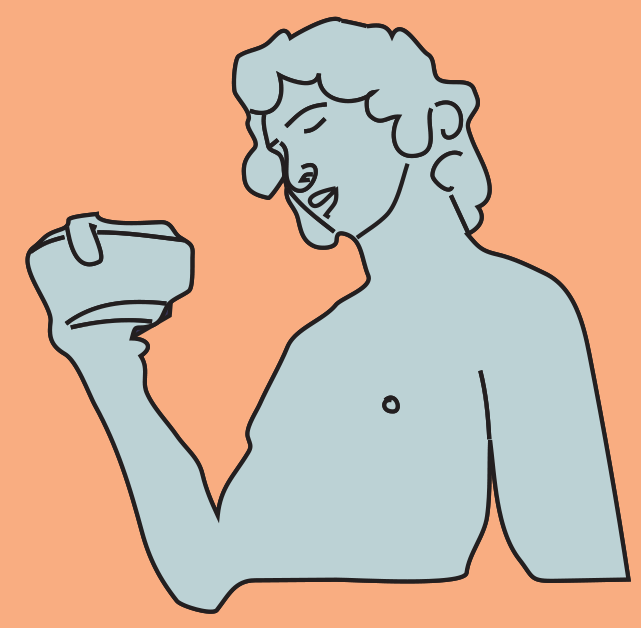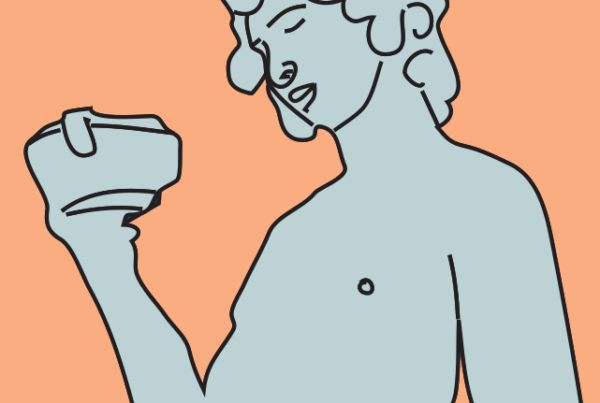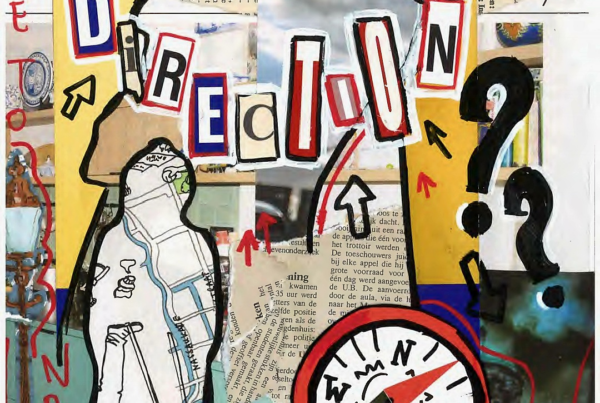

Everyone knows that feeling of being exhausted after a long day, with the deepest wish to forget about everything for a while and drift away in some soothing dreams. Unfortunately, many people − like me − don’t actually succeed in fulfilling this wish every night. Not because of a lack of motivation: I try very hard to fall asleep. It’s mainly because I just can’t ‘turn off’ my mind and keep ruminating about random things that happened the day or week before. I would describe this experience as some kind of mental torture, where the mind feels sleepy and awake at the same time. Frustratingly, when I do finally manage to fall asleep, I often slip into some tiring dreams, which are related to the topics I keep thinking about while awake. A couple of years ago I picked grapes for a full week, because of this problem. I would pick actual grapes by day and whenever I closed my eyes at night, I could still see myself picking mental grapes until I fell asleep and dreamt about even more grape picking. This wasn’t a very pleasant experience. I still don’t have an appetite for eating grapes now, years after my grapeful adventure.
Dreams like the ones I had about grapes are very far from the beautiful dreams everyone often talks about. Despite the fact that everyone has bad dreams, the word ‘dream’ seems to have a positive connotation. When Martin Luther King claimed that he ‘had a dream’, he wasn’t talking about a nightmare or some incongruent stream of thoughts. The word dream is often used in a figurative way, describing some kind of wonderful, maybe even unrealistic, goal the person wants to achieve. This makes a ‘dreamer’ a person that has big, hard to achieve ideas. Alternatively, a dreamer could also be a person who never pays attention, deeply retreated into his own mind. This kind of dreamer has a more negative connotation to it.
I feel like the figurative ‘dream’ only refers to a particular kind of literal ‘dream’. Namely the perfect, beautiful and coherent dreams we sometimes have. Dreams where you are running beside the love of your life through a lush orchard with apple blossoms, where you are flying high in a beautiful sky or dreams in which you get to see loved ones who have passed away.
When we do get one of these beautiful dreams, it’s an amazing feeling and it leaves a great thought to start a new day with. In my experience, however, we don’t get this kind of dreams very often. The majority of dreams seem to be boring, like my grape related dreams, or just very strange and incongruent. This draws a stark contrast with the figurative meaning of dreams.
One thing literal and figurative dreams do have in common, is the creativity and imagination that shape them. Both kinds of dreams are about unlikely situations that aren’t very likely to happen in real life. The difference is that for ‘figurative’ dreams, we usually do want them to come true, whereas for literal dreams, we usually don’t − if we’re talking about incongruent or bad dreams. I think it can be good to be a dreamer in both the literal and figurative way. Having literal dreams can be strange and annoying, but you could also see it as an adventure, a source of inspiration or a way to confront your fears. Having figurative dreams might be essential for human progress. Without this kind of dreamer, we wouldn’t have ground-breaking and optimistic ideas for change. So whatever you do, never stop dreaming in any way you can.

Everyone knows that feeling of being exhausted after a long day, with the deepest wish to forget about everything for a while and drift away in some soothing dreams. Unfortunately, many people − like me − don’t actually succeed in fulfilling this wish every night. Not because of a lack of motivation: I try very hard to fall asleep. It’s mainly because I just can’t ‘turn off’ my mind and keep ruminating about random things that happened the day or week before. I would describe this experience as some kind of mental torture, where the mind feels sleepy and awake at the same time. Frustratingly, when I do finally manage to fall asleep, I often slip into some tiring dreams, which are related to the topics I keep thinking about while awake. A couple of years ago I picked grapes for a full week, because of this problem. I would pick actual grapes by day and whenever I closed my eyes at night, I could still see myself picking mental grapes until I fell asleep and dreamt about even more grape picking. This wasn’t a very pleasant experience. I still don’t have an appetite for eating grapes now, years after my grapeful adventure.
Dreams like the ones I had about grapes are very far from the beautiful dreams everyone often talks about. Despite the fact that everyone has bad dreams, the word ‘dream’ seems to have a positive connotation. When Martin Luther King claimed that he ‘had a dream’, he wasn’t talking about a nightmare or some incongruent stream of thoughts. The word dream is often used in a figurative way, describing some kind of wonderful, maybe even unrealistic, goal the person wants to achieve. This makes a ‘dreamer’ a person that has big, hard to achieve ideas. Alternatively, a dreamer could also be a person who never pays attention, deeply retreated into his own mind. This kind of dreamer has a more negative connotation to it.
I feel like the figurative ‘dream’ only refers to a particular kind of literal ‘dream’. Namely the perfect, beautiful and coherent dreams we sometimes have. Dreams where you are running beside the love of your life through a lush orchard with apple blossoms, where you are flying high in a beautiful sky or dreams in which you get to see loved ones who have passed away.
When we do get one of these beautiful dreams, it’s an amazing feeling and it leaves a great thought to start a new day with. In my experience, however, we don’t get this kind of dreams very often. The majority of dreams seem to be boring, like my grape related dreams, or just very strange and incongruent. This draws a stark contrast with the figurative meaning of dreams.
One thing literal and figurative dreams do have in common, is the creativity and imagination that shape them. Both kinds of dreams are about unlikely situations that aren’t very likely to happen in real life. The difference is that for ‘figurative’ dreams, we usually do want them to come true, whereas for literal dreams, we usually don’t − if we’re talking about incongruent or bad dreams. I think it can be good to be a dreamer in both the literal and figurative way. Having literal dreams can be strange and annoying, but you could also see it as an adventure, a source of inspiration or a way to confront your fears. Having figurative dreams might be essential for human progress. Without this kind of dreamer, we wouldn’t have ground-breaking and optimistic ideas for change. So whatever you do, never stop dreaming in any way you can.



